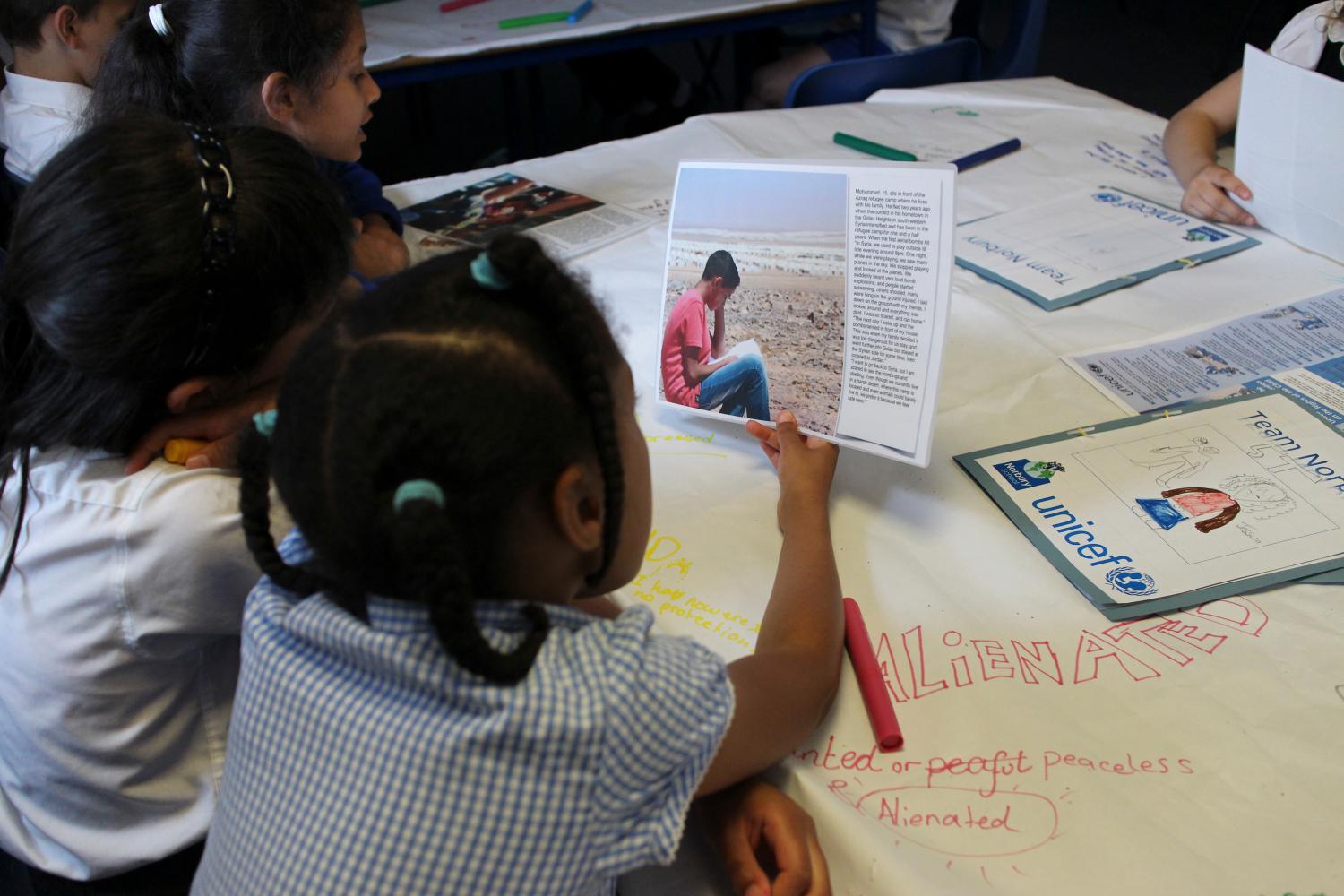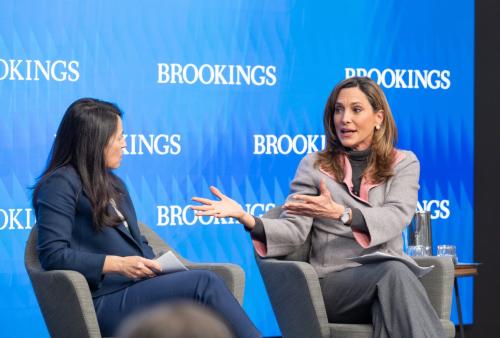President Obama’s speech in Kansas about economic inequality is only the most recent in a series of high-profile speeches and reports that highlight one of the more serious issues facing the nation. Although we think of ourselves as the land of opportunity, millions of America’s children from poor families face constrained futures that will leave many of them no better off than their parents. Based on a massive study at the University of Michigan and a Brookings report for Pew’s Economic Mobility Project, we know that adult children of parents in the bottom 20 percent of the income distribution have over a 40 percent chance of staying in the bottom 20 percent when they grow up. Similarly, they have only a 6 percent chance of getting to the top 20 percent. These numbers suggest two conclusions: parental background is enormously important in determining where kids wind up in the income distribution when they grow up and the land of opportunity may have less than we thought.
It borders on fantasy to believe that anything bipartisan could actually take place in the nation’s Capitol, but let’s ignore that and assume that during the new year there is bipartisan agreement that the nation should devote serious attention to improving the chances that kids from the bottom can make it out and up. Greater mobility would be good for them, good for the American economy, and balm for those of us who still believe in the American Dream. But what can policymakers do in 2012 that will increase economic mobility? We already spend something like $700 billion on programs intended to help the poor and more than $650 billion on investment programs that pay for research, work supports for low-income families, social support, physical capital, and defense investment. The programs include housing, food, education, training, health care, social services, and a host of others. Many of the programs produce only modest or worse results, but program developers and scholars throughout the country are trying to improve the programs and, at least in some cases, they are making progress.
Arguably the most important thing policymakers can do is insist on outcome data showing which programs are working and ensure funding for those programs. The Obama administration’s emphasis on evidence about outcomes in education and other social programs, if continued and expanded, will help show which programs should be continued and which should be reformed or cut. If the habit of killing ineffective programs and using the savings to expand successful programs and test promising programs were to become routine in Washington and state capitals, we could do a lot with the resources now committed to social programs and investment programs.
But I want to call attention to factors beyond programs that invest in human capital. In our 2009 book Creating an Opportunity Society, my Brookings colleague Isabel Sawhill and I conducted an analysis based on Census Bureau data on a representative sample of Americans. We asked the data to tell us how adult Americans were doing if they followed three elementary norms of growing up in a modern society: finish high school, get a full-time job, and wait until age 21 and get married before having children. The results were astounding: young adults who followed all three norms had a 2 percent chance of winding up in poverty and a 74 percent chance of winding up in the middle class (defined as earning roughly $50,000 or more). By contrast, young adults who violated all three norms had a 76 percent chance of winding up in poverty and a 7 percent chance of winding up in the middle class.
I raise this study because as the nation’s economy appears to be gaining steam, the Occupy movements and other domestic problems continue to stimulate lots of talk about the lack of opportunity in America, and federal and state social programs continue (or not) their slow progress toward effectiveness, it seems timely to emphasize the role of personal responsibility in the fight to promote opportunity. The figures on investing and spending demonstrate that government is already doing a lot. A typical child from a poor family enjoys income and housing support for their family, health care, preschool education, public school education, college loans or scholarships, and employment and training programs, to name a few of the prominent government programs.
But unless adolescents and young adults make wise decisions about their schooling, about marriage before childbearing, and about work, our Brookings study strongly suggests that all this programmatic spending will do little to boost their chances of moving into the middle class. Federal and state policymakers, program operators and teachers, and parents need to constantly remind themselves and their children that personal responsibility is the key to success and insist that children and adolescents demonstrate more of it. Arguing that bad decisions are understandable when made by a child from a poor, single-parent family living in a bad neighborhood and attending a lousy school is a flimsy excuse that abets the problem. Without a relentless emphasis on personal responsibility, the billions of dollars we spend on government programs will continue to produce mediocre results and opportunity in America will continue to stagnate.
The Brookings Institution is committed to quality, independence, and impact.
We are supported by a diverse array of funders. In line with our values and policies, each Brookings publication represents the sole views of its author(s).




Commentary
Mobility Is a Problem; Now What?
December 23, 2011